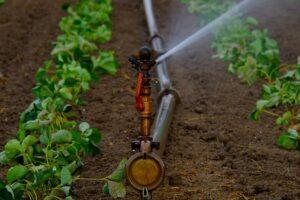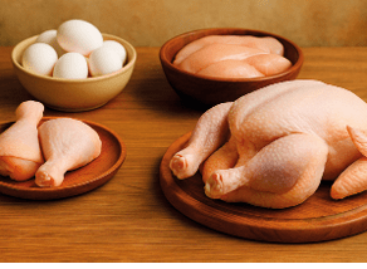During the period of permanent water shortage, it is possible to irrigate without a water law permit
The Ministry of Agriculture supported the initiative of the Association of Hungarian Farmers’ Cooperatives and Farmers’ Cooperatives and the National Chamber of Agriculture, following which the Ministry of the Interior announced a period of permanent water shortage for the entire country starting from May 24, 2024. With this measure, farmers have the opportunity for 30 days to use water for irrigation without a water law permit, which only requires a notification.

(Photo: Pixabay)
In view of the lack of rainfall in the past period, as a result of which the soil layers close to the surface became critically dry, irrigation is inevitable in agricultural crop production, which can be used to mitigate the harmful effects of drought. In order to reduce the burden on producers, water users do not even have to pay a water resource contribution for the amount of water used during the declared period of permanent water shortage. The Ministry of Agriculture draws the attention of those concerned that the use of water directly from the surface for irrigation purposes, with a temporary pumping stop, a maximum of 120 millimeters/hectare (1200 cubic meters/hectare) of water for an area not exceeding 100 hectares in size for irrigation purposes, for a maximum of one month without interruption for a period of time. The extraordinary use of water for irrigation purposes must be reported in writing to the territorially competent water authority (the county disaster management directorate), to which the consent of the manager of the surface water affected by the water withdrawal (territorially competent water directorate) must be attached. The Ministry of Agriculture constantly monitors the hydro-meteorological conditions and forecasts, as the critically dry soil condition has an unfavorable, yield-reducing effect on fall-sown field crops, but it also rejects the development of spring-sown crops, as they are now more exposed to drought soil conditions.
NAK
Related news
State compensation for the victims of Bászna Gabona Zrt. has been completed
🎧 Hallgasd a cikket: Lejátszás Szünet Folytatás Leállítás Nyelv: Auto…
Read more >EU poultry meat rules are changing: the 12-week limit for “free-range” labeling is being relaxed during a pandemic
🎧 Hallgasd a cikket: Lejátszás Szünet Folytatás Leállítás Nyelv: Auto…
Read more >Related news
Farewell day at the 60th anniversary EuroShop trade fair
🎧 Hallgasd a cikket: Lejátszás Szünet Folytatás Leállítás Nyelv: Auto…
Read more >NAV: Women’s Day inspections begin
🎧 Hallgasd a cikket: Lejátszás Szünet Folytatás Leállítás Nyelv: Auto…
Read more >







